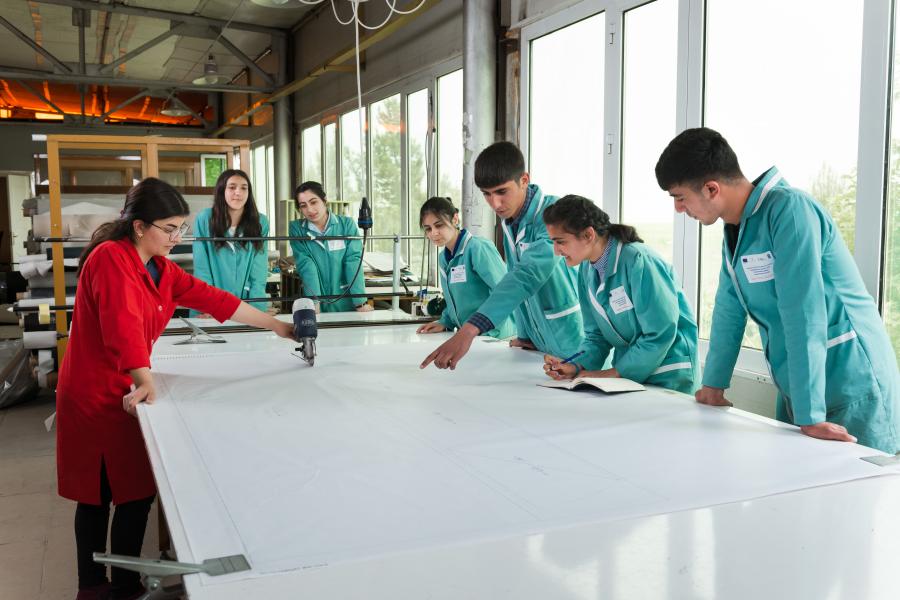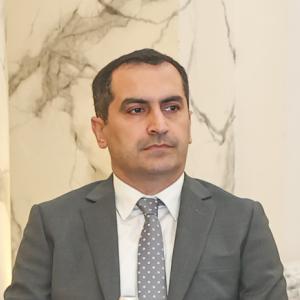EU and UNDP support apply ‘Dual Education’ approach in vocational education in Azerbaijan
11 May 2022
- With the joint initiative of the European Union (EU), the United Nations Development Programme (UNDP) and the State Agency on Vocational Education (SAVE), the Dual Education/ Work-based Learning Programme continues supporting for more agile adaptation of vocational education content to the labour market’s requirements.

The Dual Education Programme implemented in the framework of the EU-funded ‘VET for the future’ project, helps students to learn in a real-time working environment and directly increases the quality of education while contributing the modernisation process.
The project has helped to build partnerships with leading employers of Sheki, Lankaran, Jalilabad and Baku in the areas of tourism, furniture, textile and services, and the implementation has already been initiated.
As part of the Dual Education Programme, the agreements are made between the Sheki State VET Center and Marxal Resort & Spa, also Sheki Palace hotels in ‘hospitality administrator’ direction; the Jalilabad State VET Center and Woodpecker Furniture Company in ‘furniture master’, ‘carpenter’, ‘furniture fabric designer’ and ‘tailoring equipment operator’ specializations, also between the Lankaran VET Lyceum and the Lankaran Car Service Company in repair-mechanician vocation. Currently, students attend hands-up training courses in the mentioned enterprises.
The students of the Baku State VET Center for Culture and Arts have also joined the Dual Education Programme implemented in the Amburan Recreational Center under the Saffron Restaurants in ‘cook’ specialization, the Araz Supermarket Chain in food & non-food commodities seller and auditing treasurer vocations, while the students of the same Center in tailoring operator groups attend those courses at the Baku Textile Plant LLC.
Differently from traditional vocational education, the Dual Education Programme allows students to apply theoretical knowledge, gained in VET centers, in real working environment of the various enterprises. This learning process continues in parallel and throughout the academic year. At the same time, it helps vocational centers to be directly aware of the market requirements and enable them to make relevant changes in the educational content.
For the implementation of dual education approach, some agreements are made between several employers and VET Centers in the country. In line with these mutual agreements, students are provided with work uniforms, transportation, insurance, and daily food at those enterprises.
As part of the preliminary preparations in dual education, a series of meetings were held with the project stakeholders with the aim to share best practices, identify mutual expectations and commitments, as well as communication trainings were conducted for process participants on wider coverage of these topics.
Through the Dual Education/ Work-based Learning Programme delivered by the project, around 130 women and men students are involved in the process realized in districts while considering gender equality.
In the end of the Programme, 4 curricula and learning materials are planned to be updated accordingly. In the future, it is envisaged to develop the foundation concept for the larger application of this approach.
Activities implemented under the work-based learning approach will help students to directly gain knowledge and skills that meet market requirements, increase their employment opportunities, enhance public-private partnerships, and will contribute develop qualified professionals.



